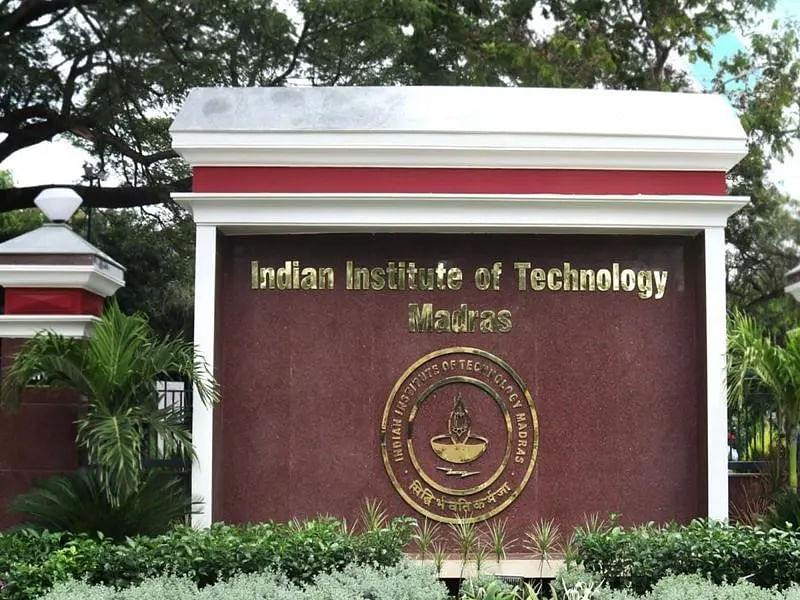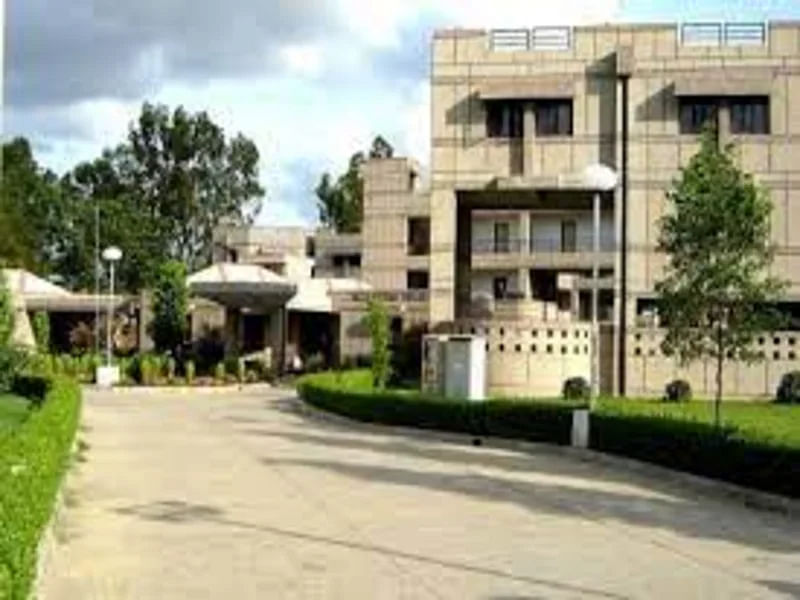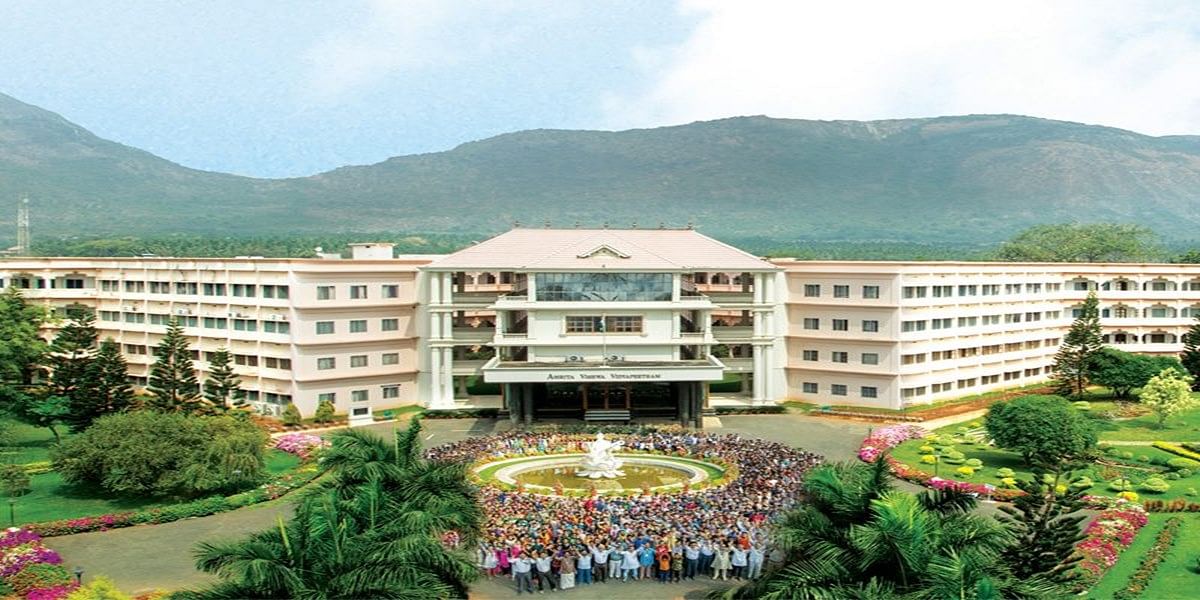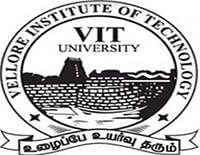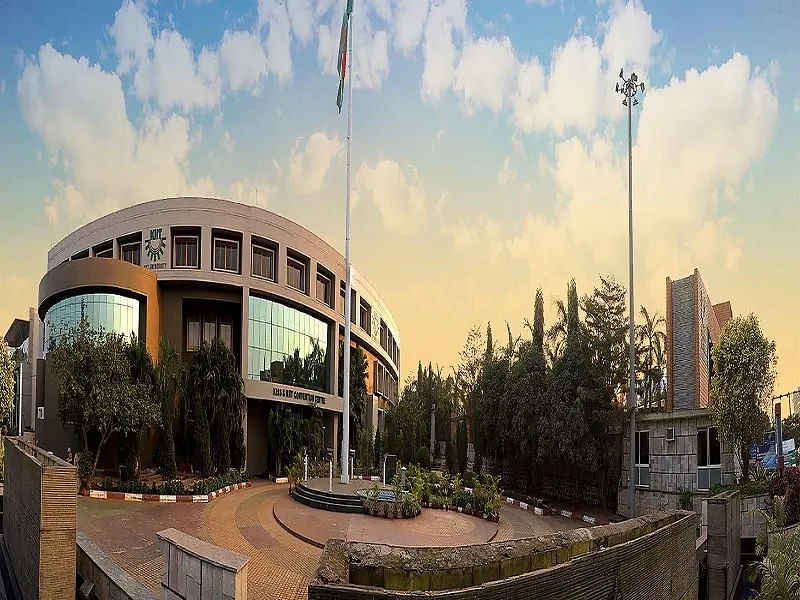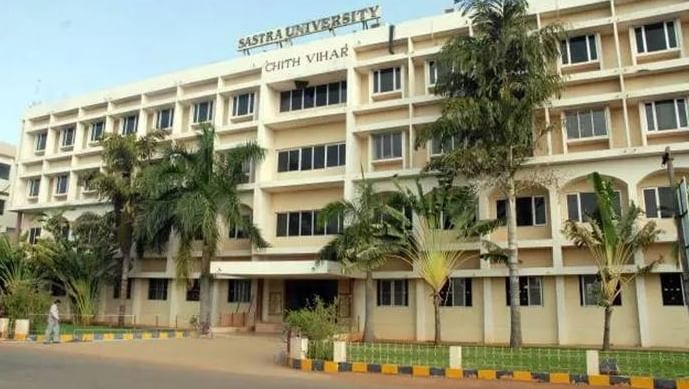B.Tech Aerospace Engineering: Course Details, Eligibility, Fees, Admission
B.Tech Aerospace Engineering is a four year undergraduate course that deals with the design, construction, physical properties, and study of the science behind the forces of aircraft, rockets, and spacecraft. The curriculum aims to impart sound knowledge in the core areas of the discipline and introduce students to advanced applications. Students will undergo advanced training in launch vehicles, aircraft, and spacecraft design and development.
Table of Contents
- About B.Tech Aerospace Engineering
- Eligibility Criteria for B.Tech Aerospace Engineering
- How To Get Admission for B.Tech Aerospace Engineering?
- Popular Entrance Exams for B.Tech Aerospace Engineering
- Top B.Tech Aerospace Engineering Colleges in India
- Fee Structure for B.Tech Aerospace Engineering
- Syllabus and Subjects for B.Tech Aerospace Technology
- Why Choose B.Tech Aerospace Engineering Course?
- Preparation Tips for B. Tech Aerospace Engineering Course
- Scope for Higher Education
- Salary of a B.Tech Aerospace Engineer
- Career Options after B.Tech Aerospace Engineering
- Skills That Make You the Best B.Tech Aerospace Engineer
B.Tech Aerospace Engineering Course Details
| Degree | Bachelors |
| Full Form | Bachelor of Technology in Aerospace Engineering |
| Duration | 4 Years |
| Age | No age limit |
| Minimum Percentage | 60% in 10+2 from any recognised board in India |
| Average Fees | ₹5 - 10 LPA |
| Average Salary | INR 7 LPA (Source: Payscale) |
| Employment Roles | Aerospace Designer, Aircraft Production Manager, Mechanical Design Engineer, Assistant Technical Officer, Aerospace engineer, etc |
About B.Tech Aerospace Engineering
B.Tech Aerospace Engineering deals with the development of aircraft, launch vehicles, and spacecraft which includes the accurate theoretical and experimental study of a variety of phenomena, complex processes, and performance predictions. Aerodynamics and flight mechanics, thermal and propulsion, architecture and structures, and materials and manufacturing are four broad subjects in B.Tech aerospace engineering.
The course falls under the umbrella of B.Tech and therefore, follows a similar admission procedure. B.Tech aerospace engineering job scope in India is exciting because there are a lot of developments happening in this area.
Eligibility Criteria for B.Tech Aerospace Engineering
Every college has its eligibility criteria, but the general criteria is given below. The BTech Aerospace Engineering eligibility criteria for aspirants are as follows:
- The eligibility criteria for B.Tech Aerospace Engineering is that aspirants must have completed 10+2 from a recognised board with subjects like physics, chemistry, and mathematics.
- Also, the aspirant must have studied English as a compulsory language.
- The minimum age for eligibility is 17 years.
- Also, a minimum of 60% must be scored in 10+2 to get eligible for selection.
How To Get Admission for B.Tech Aerospace Engineering?
Renowned institutes give admission to aspirants who perform well inboard and entrance exams. Hence, students need to prepare accordingly for the entrance exams and admission. The admission process is different for each college but the general overview is given below:
Apply for the Course
The first step in this process is to fill out the entrance exam admission form online or offline, attach all the required documents, such as the voter ID card, domicile, Aadhaar card, 10th, 12th, and final year graduation mark sheets.
Selection Criteria
Following the publication of the data, the cut-off marks will be announced. The aspirants who pass the cut-off will then be able to participate in online counselling. During online counselling, applicants must have a list of colleges they would like to be eligible for admission. The counselling body would allocate seats to the applicants based on their ranks.
Submission of fees
Selected aspirants will be given an allotment letter. For document verification, the aspirant must appear in person and pay the fees to secure their seat in the college.
Read More on B.Tech Admission
Check other important B.Tech Courses
Popular Entrance Exams for B.Tech Aerospace Engineering
There are many exams that are conducted for B.Tech courses. Some entrance exams are specific to a college. So aspirants need to check if the college conducts or considers only a specific entrance exam. Listed below are the most common popular entrance exams:
A Quick Glance at the B.Tech Aerospace Engineering Entrance Exams
Some entrance exams may have a different pattern and syllabus depending on the conducting body. Listed below is the general overview for engineering entrance exams:
- Exams may be conducted both online and offline.
- Mostly the questions will be objective.
- The question paper will be based on chemistry, physics, and mathematics. The syllabus and the model of the examination are according to the institution's preference.
- The examination time is approximately 2 to 3 hours.
Top B.Tech Aerospace Engineering Colleges in India
Listed below are the best B.Tech Aerospace Engineering colleges in India:
| NIRF Ranking | College |
| 1 | IIT Madras |
| 3 | IIT Bombay |
| 4 | IIT Kanpur |
| 5 | IIT Kharagpur |
| 14 | MIT Chennai |
| 15 | VIT Vellore |
| 21 | Indian Institute of Engineering Science and Technology Shibpur |
| 33 | Indian Institute of Space Science and Technology Thiruvananthapuram |
| 37 | SASTRA University Thanjavur |
Fee Structure for B.Tech Aerospace Engineering
B.Tech Aerospace Engineering fees range from INR 5 - 10 LPA depending on the facilities and services provided at the institute.
| Sr No. | College | Fees Structure (INR) |
| 1 | Anna University | 45,000 PA |
| 2 | IIT Madras | 6 Lakhs PA |
| 3 | IIT Kharagpur | 2 Lakhs PA |
| 4 | Manipal Institute of Technology | 4 Lakhs PA |
| 5 | Indian Institute of Space and Technology | 9 Lakhs PA |
Syllabus and Subjects for B.Tech Aerospace Technology
Aerospace engineering, being such a diverse branch in itself, has a lot to offer an individual who has freshly graduated. To conduct research, aerospace engineering requires the study and practice of physical science and mathematics. Aerodynamics, thermodynamics, control systems, propulsion, celestial mechanics, and electronics are the main fields of specialization for a team of aerospace engineers. Listed below are some of the subjects taught in this course:
- Fluid Mechanics
- Basic Thermodynamics
- Aerospace Technology and Machines
- Heat Transfer
- Theory of Vibration
- Computational Fluid Dynamics
- Aircraft System and Instrumentation
- Avionics
- Elements of Aeronautics
- Gas Dynamics
- Engineering Graphics
Read More: B.Tech Aerospace Engineering Syllabus and Subjects
Why Choose B.Tech Aerospace Engineering Course?
Aerospace engineering's scope in India is exciting as new projects are taken up now and then. India has the third-largest civil aviation industry globally, which is why aircraft manufacturers such as Airbus and Boeing are ready to launch operations in India. Aerospace Engineering is one of the best courses for a promising career for today's young people.
For Aerospace engineering opportunities in India and overseas, it has a unique reach. The ISRO, India's leading space agency, ranks at no. 5 worldwide with a budget of more than $1.5 billion and a record of launching the most satellites in a single mission. Air Force, Airlines, Corporate Research Firms, Helicopter Companies, Ministry of Defense, Aviation Companies, NASA, Flying Clubs, Aeronautical Laboratories, Aircraft Manufacturers, Government-owned Air Services all offer jobs to aerospace engineers.
What is B.Tech Aerospace Engineering All About?
The following points explain what aerospace engineering is all about:
Designing: Students will undergo advanced training in launch vehicles, aircraft, and spacecraft design and development. Unlike other conventional ground-based systems, optimality and reliability in such systems are of utmost importance to aerospace engineering. This requires thorough theoretical and experimental study of several phenomena and efficiency predictions of many complex systems.
Research and Development: Graduates of these programs will focus a lot of their time on research and development, for example, rocket, spacecraft research, and mission preparation. It is a work profile that involves expertise in measurement, analytics, and observation.
What Does a B.Tech Aerospace Engineer Do?
This course has an excellent career scope. Let's dive deep into the basic task of an aerospace engineer:
Constructing: An aerospace engineer designs, checks, and operates aircraft, rockets, satellites, and missile manufacturing. Prototypes are tested to ensure that they perform correctly according to specification, and new technologies are created to be used in space exploration, aviation, and defense systems.
Quality Control: They develop quality management and design process principles, recognise problems with products, and solve them. Aerospace engineers specialise in guidance/navigation and control, aerodynamic fluid flow, instrumentation and communication, robotics, structural design, or propulsion and combustion.
Reasons Why Civil Engineering Can Fetch You a Rewarding Career?
Few fields have had such a profound impact on society as aerospace engineering. Many of the modern conveniences we take for granted, such as portable calculators and nonstick pans, were first designed to help space travel. Today's aerospace engineers are also working to boost our ability to see the far reaches of the cosmos and how we live our lives here on Earth. If one wants to develop cutting-edge innovations that will form the twenty-first century and beyond, a degree in aerospace engineering can help.
Read More: B.Tech Aerospace Engineering Jobs and Scope
Preparation Tips for B. Tech Aerospace Engineering Course
Aerospace engineering courses can enrich students interested in science, research, and development. Listed below are some tips are given for B. Tech Aerospace Engineering-:
Syllabus: Take a look at the syllabus and mark your strong and weak points.
Exam Pattern: Take a look at the exam pattern and give mock papers to improve your time management skills.
Connect with students: Talk to people who have already cleared the course and take tips from them.
Scope for Higher Education
An aspirant can go for M.Tech/M.Sc in Aerospace Engineering, Fluid Mechanics, Material Science, etc. GATE is a good option for an aspirant to enter the best Indian colleges like IITs, IISc, NIT, and other reputed colleges. An aspirant can also pursue their masters from foreign universities, then prepare for GRE. The UGC NET and DBT BET are two exams that an aspirant must qualify for pursuing JRF, Lectureship, or PhD.
- MBA
- M.Tech Aerospace Engineering
- M.E Aeronautical Engineering
- M.E Aerospace Engineering
- M.Tech in Aeronautics
- M.S in Aerospace Engineering
- Ph.D. in Aeronautical Engineering
- Ph.D. in Aerospace Engineering
Salary of a B.Tech Aerospace Engineer
The average salary in this field depends on the graduate’s experience, problem-solving skills, qualifications, and performance. But the average salary for a freshman is around INR 7 LPA. The salary also depends on whether it’s a private or government job and the job's location.
Read more: B.Tech Aerospace Engineering Salary
Career Options after B.Tech Aerospace Engineering
There are ample career opportunities in this field after graduation, both in the government and the private sector. Also, applicants can apply for jobs abroad. Air Force, Airlines, Corporate Research Firms, Helicopter Companies, Ministry of Defense, Aviation Companies, NASA, Aircraft Manufacturers, Government-owned Air Services, etc., offer jobs for aerospace engineers.. Listed below are some of the popular career options in this field:
- Aerospace Designer
- Aircraft Production Manager
- Assistant Technical Officer
- Aerospace engineer
- Thermal design engineers
- Mechanical design engineers
Skills That Make You the Best B.Tech Aerospace Engineer
Listed below are the essential skills required to become aerospace engineers:
- Problem Solving Skills: One of the most important skills required in this field is problem-solving as an aspirant will face lots of problems during their career, but they have to solve problems on the go as it is a very fast-moving space.
- Communication Skills: Another important skill is communication. As this is a field that requires an aspirant to work in teams and clear communication between personnel is vital for success.
- Strong Mathematical and Mechanical Skills: Another important skill is to have a strong command over mathematics and mechanics, as both are vital to become successful in this field.
Top B.Tech Aerospace Engineering Colleges
Top Engineering Entrance Exams
B.Tech Aerospace Engineering Fee Structure
FAQs on B.Tech Aerospace Engineering
Q: ⭐What skills do I acquire from this course?
Q: ⭐What is the scope of Aerospace engineering?
Q: ⭐How important are aerospace engineers to the betterment of our society?
Q: ⭐Why aerospace engineering is important on a day to day basis?
Q: ⭐Do aerospace companies recruit more mechanical engineers than aerospace engineers?
